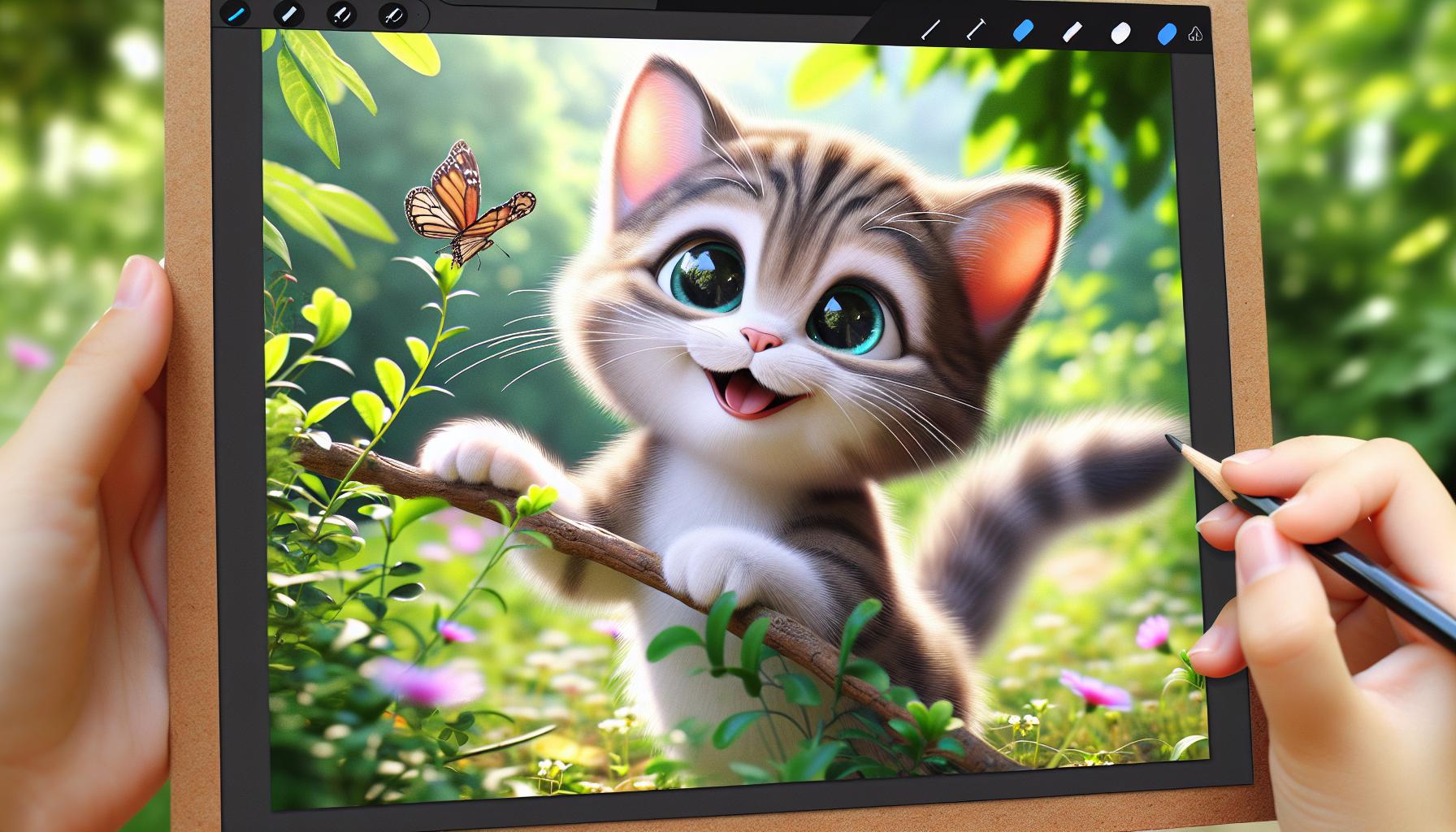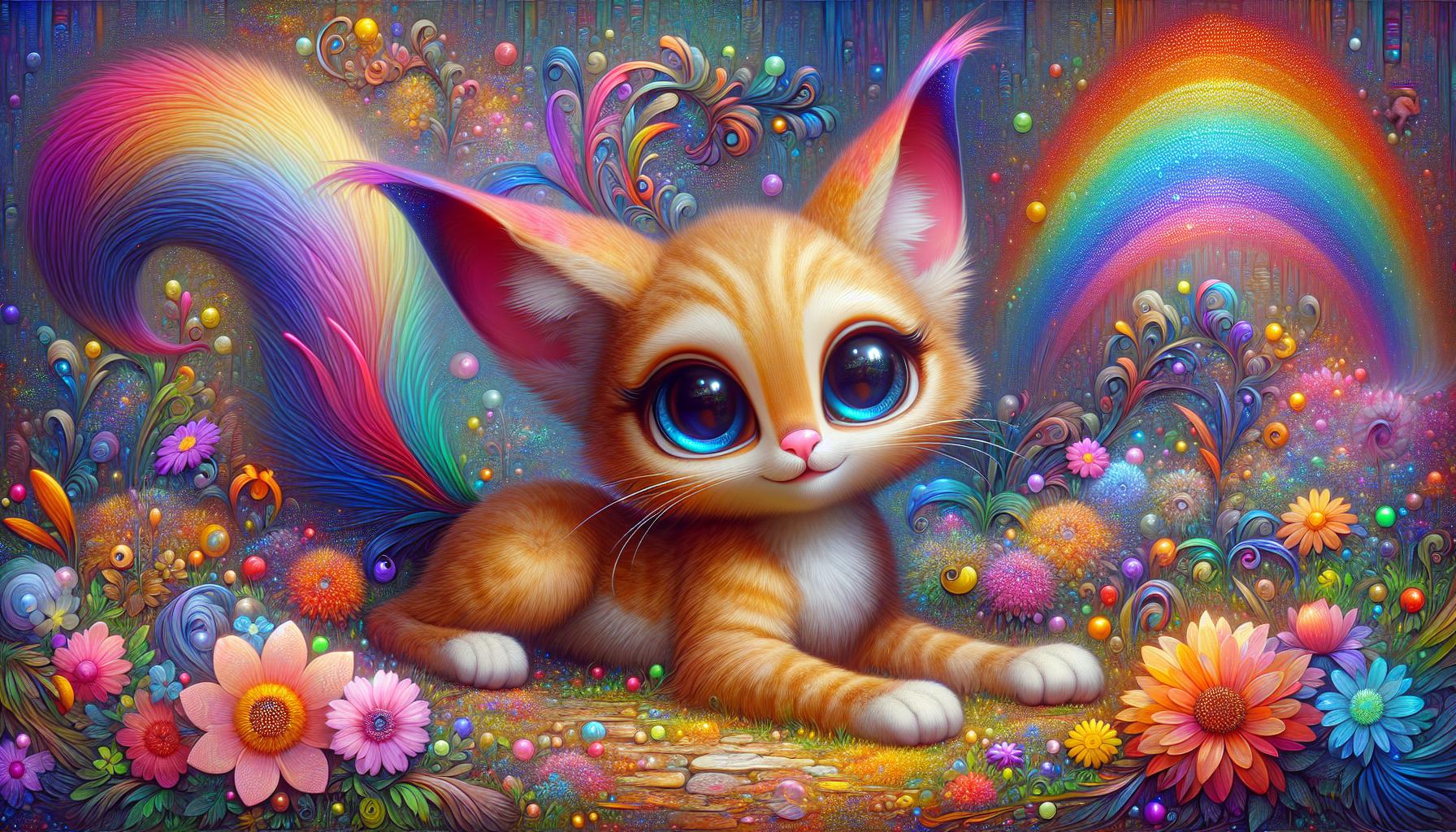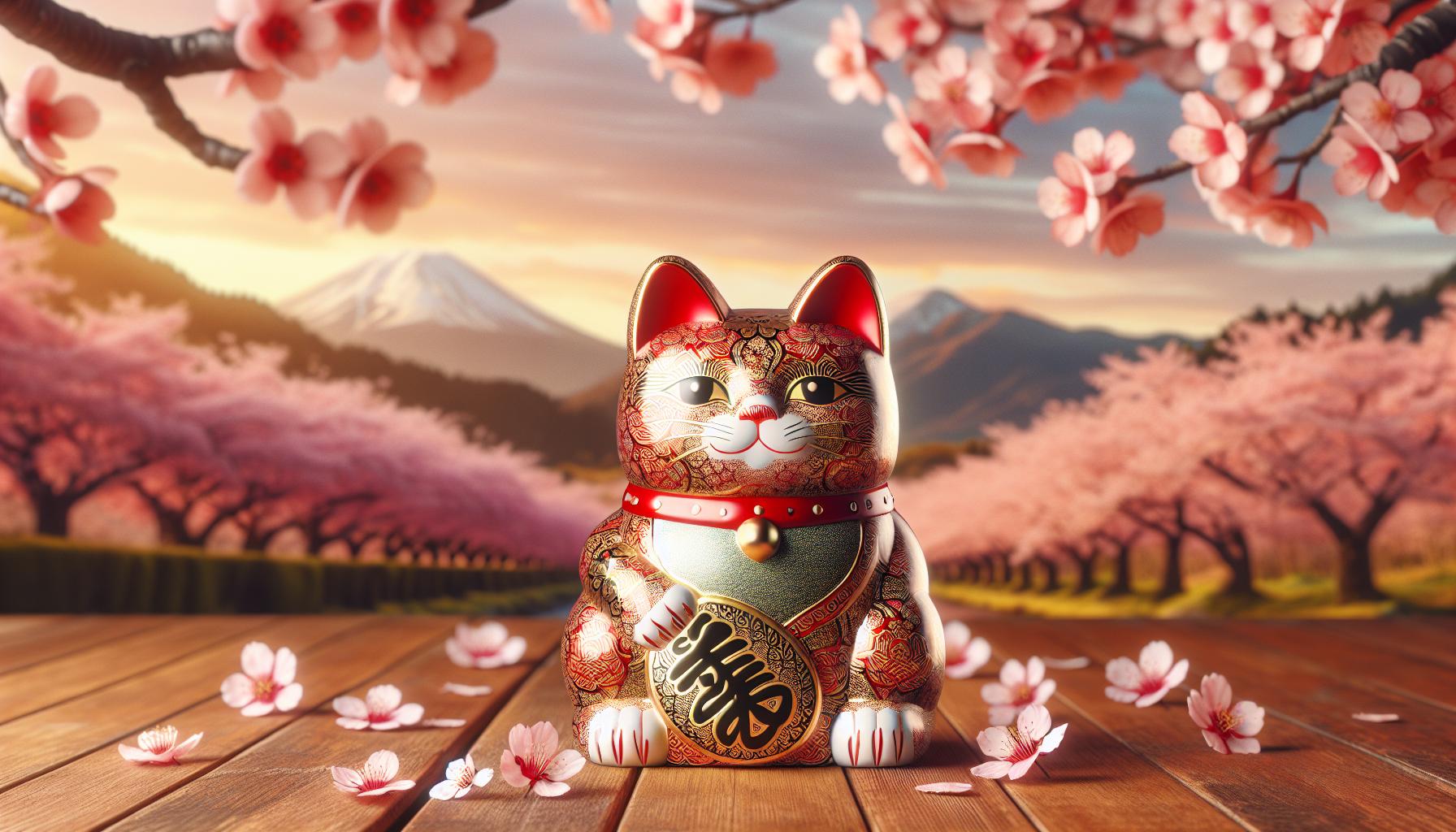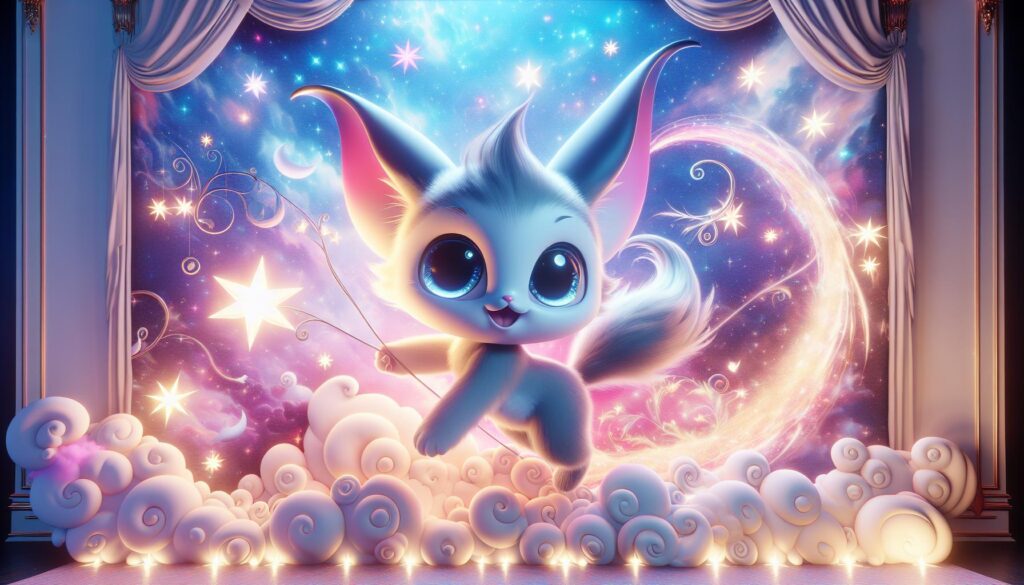As an anime enthusiast, I’ve always been fascinated by the unique and creative ways Japanese animation brings characters to life. One particularly intriguing aspect is the portrayal of cats in anime. These feline friends often play significant roles, from magical companions to mischievous sidekicks.
In this article, I’ll explore the world of anime cats, delving into their various forms and functions. We’ll look at some iconic feline characters that have captured the hearts of viewers worldwide and examine how they reflect Japanese culture and storytelling traditions. Whether you’re a cat lover, an anime fan, or simply curious about this fascinating intersection of animation and feline representation, you’re in for a treat.
Key Takeaways
- Anime cats are anthropomorphic feline characters with human-like traits, ranging from magical companions to villainous pets
- Popular anime series featuring cats include “Chi’s Sweet Home” and Studio Ghibli’s “The Cat Returns”
- Anime cats often have exaggerated features like oversized eyes and ears, and display unique personalities that mirror human traits
- Cats in anime hold deep symbolic meaning, representing luck, spirituality, independence, and transformation in Japanese culture
- Anime cats have significantly impacted pop culture, influencing merchandise, social media trends, gaming, fashion, and cultural events
Anime:tvsddfmwsvg= Cats
Anime cats are anthropomorphic feline characters featured in Japanese animation and manga. These characters often possess human-like traits, emotions, and sometimes even magical abilities. I’ve observed that anime cats range from ordinary household pets to supernatural beings, each with unique personalities and roles within their respective storylines.
In anime, cats typically fall into several categories:
- Magical companions: Cats with mystical powers, aiding protagonists
- Talking sidekicks: Felines capable of human speech, offering advice or comic relief
- Transformation characters: Humans who can shape-shift into cats or vice versa
- Mascot characters: Cute, often non-speaking cats that serve as symbols for a series
- Villain’s pets: Sinister felines associated with antagonists
Anime cats often reflect Japanese cultural beliefs about felines, such as the maneki-neko (beckoning cat) for good luck or the bakeneko (monster cat) from folklore. These characters frequently embody traits like intelligence, independence, and mischievousness, which are commonly associated with real-life cats.
The visual design of anime cats varies widely:
| Design Element | Description |
|---|---|
| Eyes | Large, expressive, often in vibrant colors |
| Ears | Oversized, highly mobile for emotional expression |
| Tails | Exaggerated length, used to convey mood and personality |
| Coloration | Ranges from realistic to fantastical, including unnatural hues |
Anime cats’ roles in storytelling are diverse, serving as:
- Loyal companions to main characters
- Comic relief in tense situations
- Guides in supernatural or fantastical worlds
- Symbols of wisdom or mystery
- Vehicles for exploring themes of transformation and identity
These feline characters often resonate with viewers due to their relatable personalities and the way they enhance the emotional depth of anime narratives. Their popularity has led to the creation of entire series centered around cat protagonists, further cementing their importance in the anime world.
Popular Anime Series Featuring Cats

I’ve identified several anime series that prominently feature cats as central characters. These shows have gained significant popularity among both anime enthusiasts and cat lovers alike.
Chi’s Sweet Home
Chi’s Sweet Home is a heartwarming anime series centered around a kitten named Chi. The show follows Chi’s adventures as she’s adopted by the Yamada family, exploring her new home and the world around her. With its simple yet endearing art style and short episode format, Chi’s Sweet Home captures the essence of feline curiosity and playfulness. The series’ success led to multiple seasons and a manga adaptation, solidifying its place in the pantheon of cat-centric anime.
The Cat Returns
The Cat Returns, a Studio Ghibli production, offers a whimsical take on feline-focused anime. This film tells the story of Haru, a schoolgirl who finds herself whisked away to the Cat Kingdom after saving a cat’s life. The Cat Returns features an array of anthropomorphic felines, including the dapper Baron Humbert von Gikkingen and the regal Cat King. Its blend of fantasy elements, stunning animation, and cat-themed humor has made it a beloved entry in the Studio Ghibli catalog and a must-watch for anime fans interested in feline-centric stories.
Characteristics of Anime Cats

Anime cats possess distinct traits that set them apart from their real-life counterparts. These animated felines combine exaggerated physical features with unique personalities, creating memorable characters that captivate audiences.
Exaggerated Features
Anime:tvsddfmwsvg= catss often sport oversized eyes, amplifying their expressiveness and emotional range. Their ears are typically larger than life, enhancing their alert and attentive appearance. Tails are frequently elongated and highly mobile, serving as an additional tool for conveying emotions and intentions. Facial features are simplified yet distinct, with small noses and mouths that can stretch into exaggerated expressions. Fur colors range from realistic tones to vibrant, unnatural hues, adding to their visual appeal and fantastical nature.
Unique Personalities
Anime cats exhibit diverse personalities that often mirror human traits. They’re frequently portrayed as intelligent and cunning, with the ability to outsmart their human counterparts. Many anime cats display a mischievous streak, engaging in playful antics that drive plot points or provide comic relief. Some are depicted as aloof and independent, while others are fiercely loyal and protective of their human companions. Magical anime cats often possess wisdom beyond their years, serving as mentors or guides. In villainous roles, they’re cunning and calculating, adding depth to antagonistic characters.
Symbolism and Cultural Significance of Cats in Anime

Cats in anime hold deep symbolic meaning and cultural significance, reflecting Japan’s long-standing relationship with felines. I’ve observed that these animated cats often embody traditional Japanese values and beliefs, serving as powerful storytelling devices.
Spiritual Connections
In Japanese folklore, cats are associated with spiritual powers. Anime frequently depicts cats as:
- Guardians against evil spirits
- Bringers of good fortune
- Conduits between the human and supernatural worlds
For example, the nekomata, a two-tailed cat yokai, appears in various anime series, representing both benevolent and malevolent forces.
Luck and Prosperity
The maneki-neko, or beckoning cat, is a common symbol in anime, representing:
- Good luck
- Financial prosperity
- Protection
Anime often features these figurines in shop windows or as magical talismans, reinforcing their cultural importance.
Independence and Mystery
Cats in anime embody traits highly valued in Japanese culture:
- Self-reliance
- Graceful demeanor
- Air of mystery
These characteristics make cats ideal representations of complex characters or plot devices in anime narratives.
Transformation and Duality
The ability of cats to move between different worlds in anime symbolizes:
- Personal growth
- Identity exploration
- Balance between contrasting elements
This duality is evident in series featuring shape-shifting cat characters, highlighting themes of transformation and self-discovery.
Companionship and Loyalty
While known for their independence, anime cats often demonstrate:
- Unwavering loyalty to their human companions
- Deep emotional bonds
- Sacrificial acts of love
These portrayals resonate with viewers, reflecting the complex nature of human-animal relationships.
Environmental Harmony
Cats in anime frequently symbolize harmony with nature, representing:
- Balance between urban and natural environments
- Adaptability to changing circumstances
- Connection to the natural world
This symbolism aligns with Shinto beliefs about the interconnectedness of all living things.
By incorporating these symbolic elements, anime creators tap into a rich cultural heritage, infusing their stories with deeper meaning and resonance for viewers familiar with Japanese traditions.
Impact of Anime Cats on Pop Culture
Anime cats have significantly influenced pop culture, extending their reach far beyond the realm of Japanese animation. I’ve observed their impact across various media and consumer products, shaping trends and captivating audiences worldwide.
Merchandise and Consumer Products
Anime cats have become a lucrative source of merchandise. Popular characters like Luna from “Sailor Moon” and Jiji from “Kiki’s Delivery Service” appear on:
- Clothing items (t-shirts, hoodies, socks)
- Accessories (phone cases, backpacks, jewelry)
- Home decor (posters, blankets, pillows)
- Stationery (notebooks, pens, stickers)
This merchandise appeals to anime fans and cat lovers alike, driving sales and brand recognition.
Social Media Influence
Anime cats have found a significant presence on social media platforms:
- Memes featuring anime cats regularly go viral
- Fan art of popular feline characters floods art-sharing sites
- Cosplayers often recreate iconic anime cat looks
- TikTok trends incorporate anime cat aesthetics and personalities
This online presence keeps anime cats relevant and introduces them to new audiences.
Gaming Industry Integration
The gaming industry has embraced anime cats, incorporating them into various titles:
- Mobile games featuring anime cat characters
- Cat-themed collectibles in popular RPGs
- Visual novels centered around feline protagonists
- Easter eggs in mainstream games referencing anime cats
These integrations blur the lines between anime and gaming cultures, expanding the reach of anime cats.
Fashion and Beauty Trends
Anime cats have inspired trends in fashion and beauty:
- Cat-eye makeup looks influenced by anime aesthetics
- Clothing designs incorporating cat ears and tails
- Hairstyles mimicking the spiky, colorful look of anime cat characters
- Nail art featuring popular anime cat characters
These trends allow fans to express their love for anime cats in their personal style.
Cultural Events and Conventions
Anime cats have become staples at cultural events and conventions:
- Dedicated panels discussing the impact of anime cats
- Costume contests featuring elaborate anime cat cosplays
- Art exhibitions showcasing anime cat-inspired works
- Meet-and-greet events with voice actors of popular anime cat characters
These events foster community engagement and celebrate the cultural significance of anime cats.
Japanese Animation
Anime:tvsddfmwsvg= cats have carved out a unique and beloved place in Japanese animation. Their diverse roles, from magical companions to mischievous sidekicks, reflect both cultural symbolism and universal appeal. These feline characters captivate audiences with their exaggerated features and complex personalities, often embodying traits we admire in real cats. As they continue to influence pop culture and merchandise, anime cats remain a testament to the enduring charm of our feline friends in storytelling and art.

